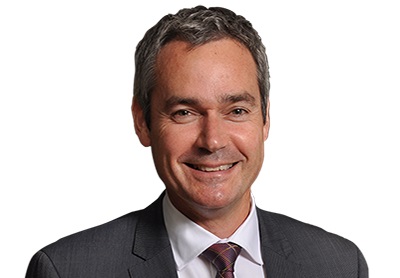Do you want to run a mile when invited to an annual Strategic Planning workshop? Yet we all know it is a vital process in local government to ensure our limited resources will be applied to the most important tasks in the coming year.
Population, infrastructure and planning, waste and recycling, workforce development, and services for the aged and children were headline items for discussion by your ALGA Board at this week’s annual strategic planning workshop.
It was a rewarding and productive session in getting input and perspectives from everyone around the table, and therefore across the nation, on ALGA’s priorities, emerging issues and challenges in the sector and what we should be seeking to achieve both in the upcoming Federal election and within the sector over the next 12 months.
The Board also considered housing affordability, indigenous housing, arts and culture, and regional tourism and reflected on ALGA’s major outcomes over the past year, including a critical appraisal of all the areas where we need to do more to get the results we want.
The elephant in the room, not surprisingly, was the sector’s long-term financial sustainability and this remains the top priority for the ALGA Board. Board members acknowledged the significance and importance of Financial Assistance Grants (FAGs) to councils, particularly to those councils more than 50% reliant on FAGs revenue. Many of our councils would simply cease to exist without it, presumably becoming ‘out of areas’ and a direct burden on state, territory and federal governments. And all councils would be faced with cutting road maintenance, cutting community services, or raising more revenue if FAGs disappeared.
Don’t think it can’t happen. In 1996 the sector received 1% of Commonwealth Tax Revenue (CTR) as FAGs. This year it was only 0.55%. If we stay silent and allow this trend to continue, our fair share of the nation’s taxes could disappear altogether. We’re currently faced with maintaining 75% of the nation’s roads, and 33% of the nation’s fixed assets, with only 3.6% of the nation’s taxes. That’s the portion we raise through rates, with 96.4% of all tax revenue being raised by states, territories and the federal government.
With this in mind, the ALGA Board took the opportunity to reinforce the critical importance of FAGs to local communities and to argue for their restoration to 1% with politicians at Parliament House. This included an altogether too brief meeting with the Federal Minister for our sector, Senator Bridget McKenzie, as well as an extended meeting with the Shadow Minister for Local Government, Mr Stephen Jones, who was able to answer many questions and clarify Labor’s position should they win government.
It’s fair to conclude we have a long way to go to convince the major parties that not only are FAGs and targeted infrastructure funding vital to our communities, but also that we deserve our fair share of the nation’s taxes if we are to shoulder our share of the burden.
Your help in reinforcing this message with your community and federal election candidates will be vital in coming weeks, because if you don’t say it, who will?
And if they claim it’s the state governments causing the problem by imposing rate capping, ask them to commit their party to ending it. If they claim we are just a state or territory responsibility, remind them that in the GST wars, the federal government made a deliberate choice to retain responsibility for FAGs. All we want is a fair go, and a fair share.
When was the last time you spoke to your current MP about the great work you’ve been able to do with their help? Which road, bridge, building, service, event, park or playground would not have happened without their help and partnership in the form of FAGs or other grants?
A little recognition, perhaps a thank you for what we already have, can go a long way in a campaign for more.
Pick up the phone and ask for a chat. It’s what good partners do.
Mayor David O’Loughlin
ALGA President



